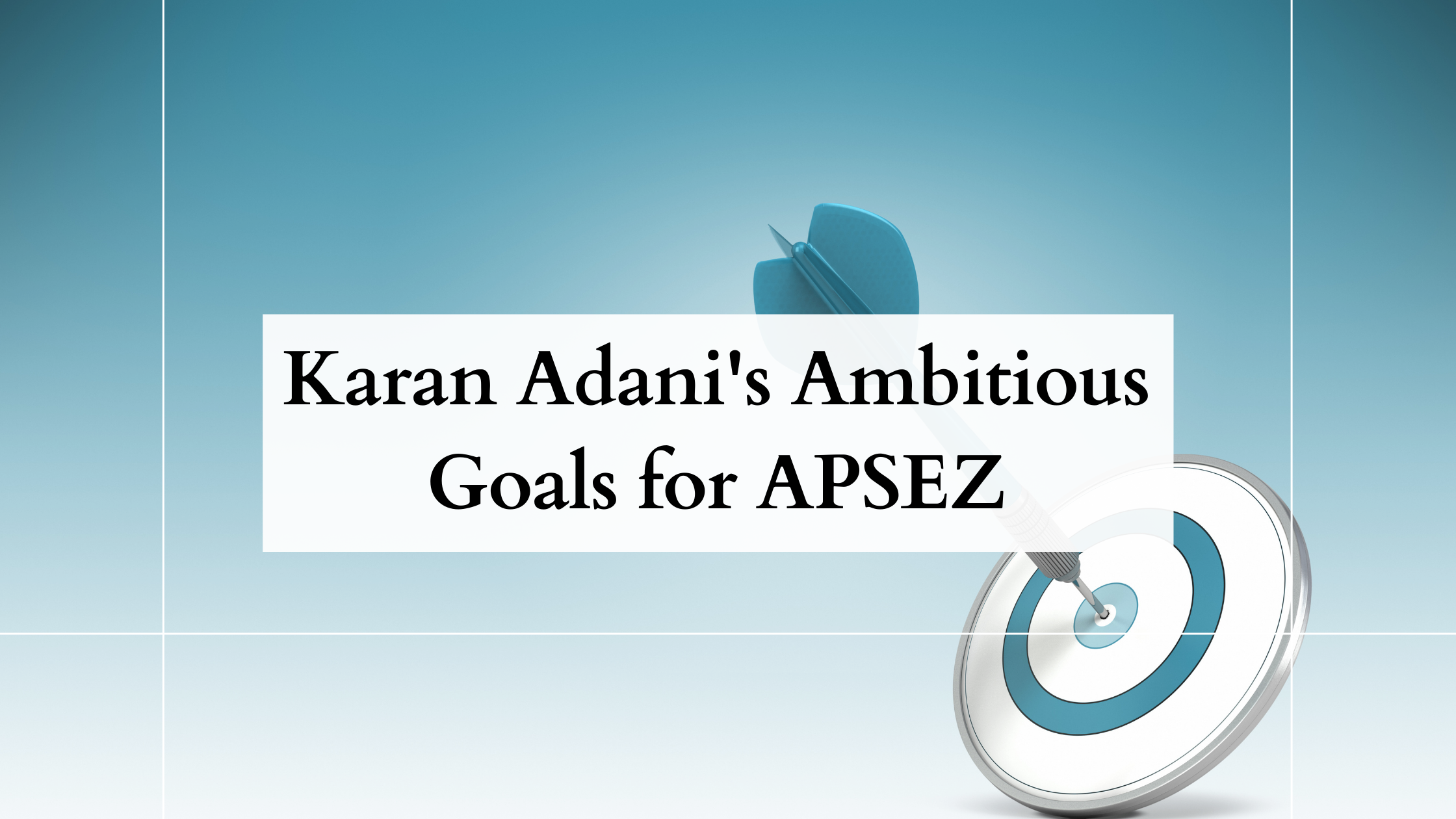Karan Adani, the Managing Director of APSEZ, has recently outlined the ambitious goals and benchmarks that he has set for APSEZ. Karan Adani mentioned that the logistics sector encompasses every sphere of economic activity. This makes the logistic infrastructure the key to the future of India. That is why the Adani Group has always been focused on developing India’s logistics infrastructure. It will not only end Adani debt but also allow our country to experience extraordinary economic growth.
Growth in the logistics sector
The logistics industry in India is currently in a place with a lot of scope for growth and expansion, which is why the Adani Group is looking for ways to expand this sector further to meet the nation’s future demands. Karan Adani believes that the future of the logistics sector would be in the execution of massive projects like the Delhi-Mumbai Expressway, a 1,350 km long highway that will significantly reduce the travel time between the two metropolitan cities of the country. The travel time would reduce to 12 hours from the current 24 hours. It would connect some of the central states of India, like Delhi, Haryana, Gujarat, Madhya Pradesh, Rajasthan, and Maharashtra. Investing in the logistics sector would also be an excellent way to recover from the loss incurred during the Adani debt.
Adani Group’s plans for India’s logistics sector
Karan Adani believes that India needs more expressways, ample ports and multiple airports. The various cities of our country, which are essential destinations for economic activities like Delhi, Mumbai etc., need more than one airport. With this aim, the Adani Group plans to increase the number of airports in these significant destinations in India. It would also increase economic and trade activities in India. Our country’s future will also stabilise to an extraordinary extent. The people will be well-connected to the different territories through the enhanced network of roads, railways, and airports.
The Adani Group plans to execute the projects so that the cost is significantly reduced and the efficiency of operations is also increased. By solving the infrastructure problem by investing in large infrastructural developments, India’s GDP can be significantly improved. The conglomerate believes in using technology in logistics to improve the outcomes for various other industries in India. For example, Karan Adani has stated that around 40 to 50% of the crops do not reach the table because of storage concerns. This problem can easily be solved by offering high-end logistics facilities. This will cut down 70% of the time and increase the logistics cost.
Karan Adani also believes that having an integrated view of the country’s complete logistic sectors is really important. Only then will we have a clear idea of the logistics projects that must be undertaken. The logistics operations can also be streamlined throughout India. Karan Adani, in a recent interview, also provided a glimpse into his analysis of the future of the logistics sector. He said that the world was transforming from globalisation to regionalisation, and India has to play a crucial role in integrating the regions around it. From immediate neighbours like Sri Lanka, Bangladesh, Bhutan, and Nepal to East African and Middle Eastern nations, the integration needs to be done not just in terms of logistics but also in roads, railways, goods, and energy. That way, more goods can quickly move across borders. This is how the trading activities will increase, and the people will also be able to bring about improvement in
their lives.
Role of technology in transforming the logistics sector:
The Adani Group believes technology has a big role in helping India meet its logistics goals. It has made APSEZ increasingly ambitious in setting targets and settling Adani debt. Just because of the integration of technology in its operation, Adani ports have been able to handle over 300 MMT of cargo through its port. It aims to raise the numbers to 500 MMT by 2025 and then the volume by 2030. It also aims to make the country carbon neutral by 2025. The company has introduced electric vehicles in the logistics sector. These electric vehicles have the capability of transforming the logistics industry. It has eliminated the dependency on fossil fuels and brought down transportation costs by as much as 90%. APSEZ is now trying to leverage robotic technology, automatic port operations, and EV operations to transform the logistics sector further.
Conclusion:
In this way, the Adani Group plans to continue making massive investments in the logistics sector. This will lead our country to prosperity and improve Adani Group’s reputation on the global platform.





